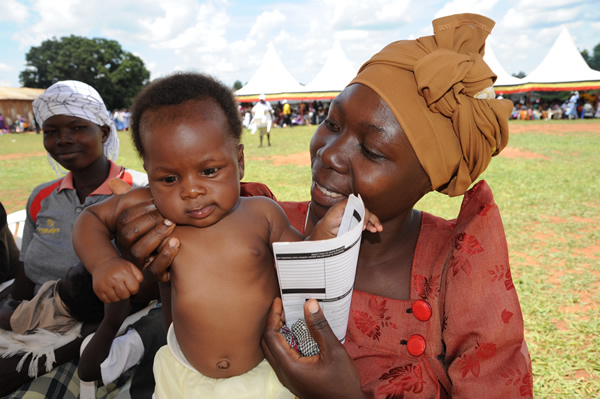
31 January 2017, Addis Ababa, Ethiopia
Today, at the 28th African Union Summit, heads of state from across Africa adopted a Declaration on Universal Access to Immunization in Africa, in which they endorsed the Addis Declaration on Immunization, a historic and timely pledge to ensure that everyone in Africa – no matter who they are or where they live – has access to the vaccines they need to survive and thrive. The WHO Regional Office for Africa applauds this landmark commitment to immunization.
The theme of this year’s African Union Summit is “Harnessing the Demographic Dividend through Investments in Youth'' – and there is no better way to invest in young people and in our continent’s future than prioritizing universal access to vaccines. Vaccines are among the most effective and cost-effective public health tools available, saving between two and three million lives every year and yielding economic benefits 44 times greater than initial investments. The economic case is simple: When children are given a healthy start, they can stay in school and grow into healthy, productive adults. At the same time, their families, communities and governments can save and reinvest the time and money previously spent caring for sick children.
A healthy generation of young people in Africa will have tremendous ripple effects. Today, Africa’s youth population is growing faster than that of any other region in the world. Between now and 2050, the working age population in sub-Saharan Africa is projected to more than double. This surge in young working-age adults could catapult many African nations into periods of rapid economic growth and stability – the “demographic dividend” – but only if every young person is equipped to thrive. That starts with ensuring children have access to life-saving vaccines.
Political will at the highest levels is an essential precursor for success toward achieving universal access, and today’s commitment couldn’t have come at a better time. While Africa has made impressive gains over the last 15 years toward increasing access to immunization, progress has stagnated, and the continent is falling behind on meeting global immunization targets.
The stakes have never been higher for African nations to make immunization an urgent priority. International funding for immunization is expected to decline in the coming years. More countries are approaching middle-income status, which will make them ineligible for donor funding through Gavi. Domestic funding – both through government budgets and innovative financing mechanisms – is needed to ensure immunization efforts are uninterrupted, particularly during upcoming transition periods.
Today’s commitment to the ADI – at the highest levels of government – demonstrates that Africa’s leaders are ready and prepared to tackle the challenges ahead. WHO and its partners are committed to supporting Member States’ efforts to ensure that life-saving vaccines reach every child, and, ultimately, improve child health and drive sustainable development across the continent.
We are grateful to Heads of State and to the line ministers who have championed the ADI over the past year for their unwavering dedication to immunization. We leave this historic African Union Summit filled with optimism and ready to work. With the right mix of political will, financial resources and technical know-how – we can ensure that no child in Africa dies of a vaccine-preventable disease.



